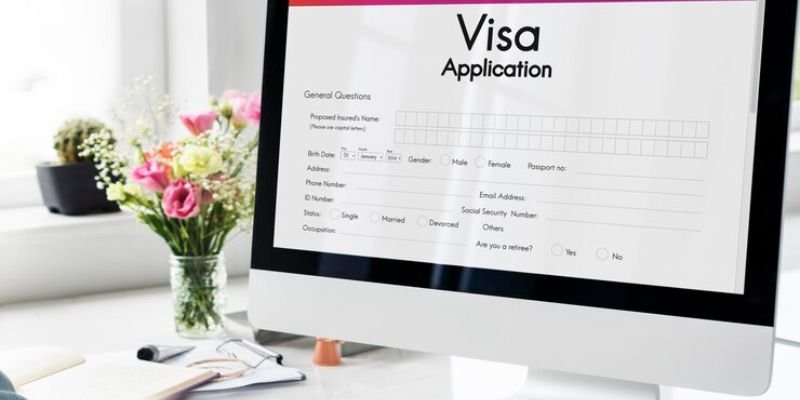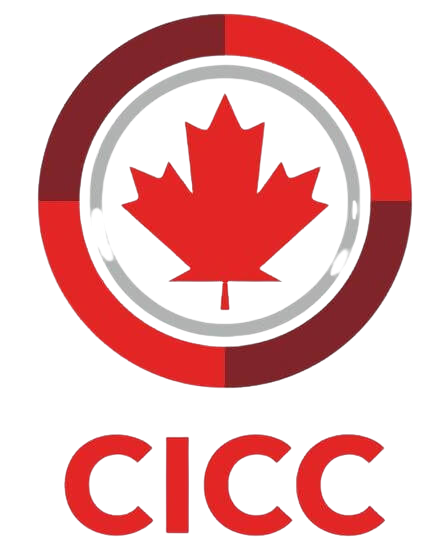The number of Canada immigration consultants has increased two folds over the years. But the only way to really secure your PR is to work on building your overall profile and making it stand out from the rest. Before applying for permanent residence one must be simply aware of How to get PR in Canada, i.e the ways to get PR in Canada through the various pathways that the Canadian Government has devised to suit the profile of every applicant.
The express entry system is one of the fastest pathways that can fetch you a Canadian permanent residence. Since it is the easiest way to get PR in Canada, you will not be alone; you will be one among the thousands of applicants holding the same profile as yours, so the candidates in the express entry pool should compete against an immense number of applicants in order to climb up the ladder. By making the application more precise with the necessary add-on that would be required for the chosen pathway; you can highlight the application in the eyes of the Visa officers which will directly increase the chances of getting PR in Canada. This is exactly why you’ll need an impressive CRS score. Although you’ll never get to know your rank, only a good CRS score can really push your profile forward. Improving your CRS score is not a sprint but a marathon that will require patience, hard work, and research. It doesn’t matter if you need just a few points or a really big boost, these 9 steps will make you know How to get PR in Canada by increasing your CRS scores.

1. Understand the CRS Scoring System
You have to make a note of the Express Entry aligned immigration streams. Determine your eligibility requirements under any one of those. Only after this you should proceed with profile creation. At this point, you’ll probably be receiving your CRS score. Most people just wait for their invitation (ITA) to arrive after this step. But it’ll only happen if you have a really good CRS score else this wait could last forever. There are various steps available that will help you improve your CRS score. Even after you’ve created an express entry profile, you can still keep working on improving your score because it is never locked or finalized. Certain improvements can only provide you with a few extra points whereas some may even give you a 600-point boost. The more points you get, the more confident you can be about your PR.

2. Leverage Your Education
Without seeking dependence on others at any time, education will reward you unexpectedly, yes, if you are an applicant who is looking to find the easiest way to get PR in Canada by increasing your CRS scores, then just include or add up your profile with extra degrees, diplomas or any additional education that can mold up your profile to a standard.
If you are going to apply under the Federal Skilled Trades Class (FSTC) of the Canadian PR, this strategy is for you. Unlike the Federal Skilled Worker Class (FSWC), you need not submit any academic documents or an ECA (Full form of ECA is Educational Credential Assessment)in order to be eligible for the program. Try mentioning all your valid education while creating the express entry profile that you have completed to date. Do not worry if your education is not relevant to your current job. Even if you have a diploma on hand that you received more than 10 years ago, you can still claim points for it. However, you still need to submit a credential assessment report for all your degrees and diplomas you’ve submitted. If done so, the system will still award you points regardless of your field of study.

3. Look for Canadian Siblings
With a little research, you can boost your CRS score with practically no extra effort and time. This is something that most people have no idea about. If you or your spouse have own sister or brother residing in Canada as a citizen or a permanent resident, your chances of getting an ITA can skyrocket. This relationship necessarily have to be blood-related or an immediate next of kin. If you can submit a legal proof for the same, you can increase your CRS score by 15 points. Although this may not look like a lot to you, there’s more than just what meets the eye. A 15-point boost can help you surpass a huge amount of competition in an instant.

4. Claim Points for Second Language
If you happen to know French just as much you know English, you have the option to claim points for both of these languages. These points will then get added to your overall CRS score. For this to be possible, you’ll have to appear in a certified language test for both of these languages. In general, any skill that you have without proper certification or legal proof may not be useful. Apart from the bonus points, you receive as a bilingual student, a lot of PNP streams prefer French speakers. You can further leverage this to add more points to your bag. Most candidates refuse to take up this step even if they qualify due to the time that it may take to get your results. This is again a gentle reminder for you to start the process as early as possible.

5. Reappear For Language Tests
Most students lag behind in the express entry draw because they have really low language test scores. But one can reappear in almost all language tests. A better result can supercharge your profile. Reappearing for your language tests is one of the fastest ways to arrive at an impressive CRS score. A good test result can fetch you up to 136 points which can even drop down to 128 if you are applying with spouse. Even a slight increase of 0.5 points under each category of your language test (speaking, listening, reading, and writing) can make a huge difference in your overall CRS score.
Try scoring (L-8, R-7, W-7, S-7) in the divisions of your test in order to reach the CLB 9 level which can fetch you the maximum CRS score. This is one of the easiest ways of increasing your CRS score in a short time.

6. Focus on gaining more work experience
Unlike writing a test, this is an elaborate long-term approach to increase your score. The amount of work experience you have is also a major contributor to your overall CRS score. The more you have, the better and the higher your score can get. Your chances of receiving an ITA will also increase as you are now a valuable asset to Canada’s economy. If you have no more than three years of work experience outside Canada, you should work on gaining some more. If you are already in Canada with a work visa, it is important that you still have your job on hand while applying for permanent residence. Having a Canadian work experience is a lot more valuable than the earlier assumption.

7. Make Use of the Provincial Nominee Program
The question of How to get PR in Canada finds an easy solution with PNP nomination, yes, if you are lucky enough to get nominated by a particular province in Canada, you can receive up to 600 points in an instant. As a PR applicant, this is as close to a jackpot as you can get. But you should prove valuable to the economic development of that particular province. Having sufficient work experience and in-demand skills is the only way for this to be possible and there’s no easy way around. Although having a Canadian job offer is not a necessity, it can indeed help you profile pop out. But every province may have their own eligibility criteria that you must fulfil. Focusing on a particular province can increase your chances of succeeding instead of having a generalised approach.

8. Have One or More Degrees on Hand
This is obviously not a short-term strategy and will require a lot of time, patience and effort. If you are a postgraduate, the points you receive will be significantly higher than what an undergraduate receives. If you already have multiple degrees on hand, you are in luck! CRS points are not the only advantage of having an extra degree or diploma. But this will also help you with the skill transfer factor of the CRS. You can fetch up to a maximum of 50 points with your additional degree. Among your post-secondary educational credentials, at least should be a three-year program. Without which you’ll not be eligible for this criteria. Although this is a long process, you should consider this an investment if you are planning on getting a PR.

9. Having a Spouse/Partner can improve your chances
Any candidate who is planning to immigrate to Canada with their spouse can prove eligible for these criteria. Based on the language skills of your spouse or common-law partner, you can add up to 20 points to your CRS score. Make a note that you will be receiving additional points for your partner.You can also leverage their education and work experience to add another 10 points to your profile foryour partner. So overall, you can receive up to 40 points for just immigrating with your Partner with decent profiles without you doing anything. Even if you don’t have a spouse who’s currently going to travel with you, you can still claim these points under your own abilities.
Conclusion
In general, you should prove to be a valuable candidate for Canada’s economy in order to climb up the PR ladder. Canada has recently made a lot of changes to its PR process. As an example, candidates with a Canadian job offer used to receive about 600 points. But now, a job offer can only get you 200 CRS points. Though this is no way near to what it used to be, it still gives a competitive advantage to the candidates who have a job offer on hand. This has indeed made it more challenging and difficult to obtain a Canadian permanent residence. But however the question of How to get PR in Canada? can be sorted out by an expert hand who can help you clear out the difficulties and show you all the possible and the easiest way to get PR in Canada and in the regard will also let you capture all the opportunities to increase your CRS and raise the chances of getting PR in Canada, So generally, it is advised to seek assistance from a good immigration consultant who can exhibit the right picture behind the Canadian Immigration programs.
FREQUENTLY ASKED QUESTIONS
Does having two Master’s degrees help in the Canadian PR application for Express Entry?
Yes, it probably adds value to your profile on assessment with regard to the level of education but anyhow no additional points would be given while calculating your CRS.
How many points do I get if I have two master's degrees for Canada PR?
A total of 23 points would be given for any number of master’s degrees, only the doctorate program i.e., Ph.D. and the research degree programs would be awarded 25 points.
Which jobs in Canada do not require Labor Market Impact Assessment?
A few self-employed categories of people who are technical workers, creative performers, and artists may not require an LMIA, also a valid job offer, or a work permit under an international agreement or a federal-provincial agreement, and the “Canadian interests” category exempts the need for LMIA.
Will the CRS score go down in 2022?
The minimum CRS score tends to decline with 8-9 points in each draw since July 2022, also the Express entry program of Canada will undergo a significant change with a keen focus to fill the gaps in the labor force by the year 2023, as a result of the upcoming trend Canada will direct the authorities to issue ITA’s to individuals with specific work experience ignoring their CRS scores, this may certainly reduce the importance of CRS scores in the upcoming draws.
What are the selection factors for Canada immigration?
The selection under the skilled worker category runs around the six factors such as
- Age
- Education
- Skilled work experience
- A valid job offer
- English and/or French language skills
- Adaptability
The above-mentioned factors carry a sum total of 100 points to assess the eligibility under the Federal Skilled Worker Program.









